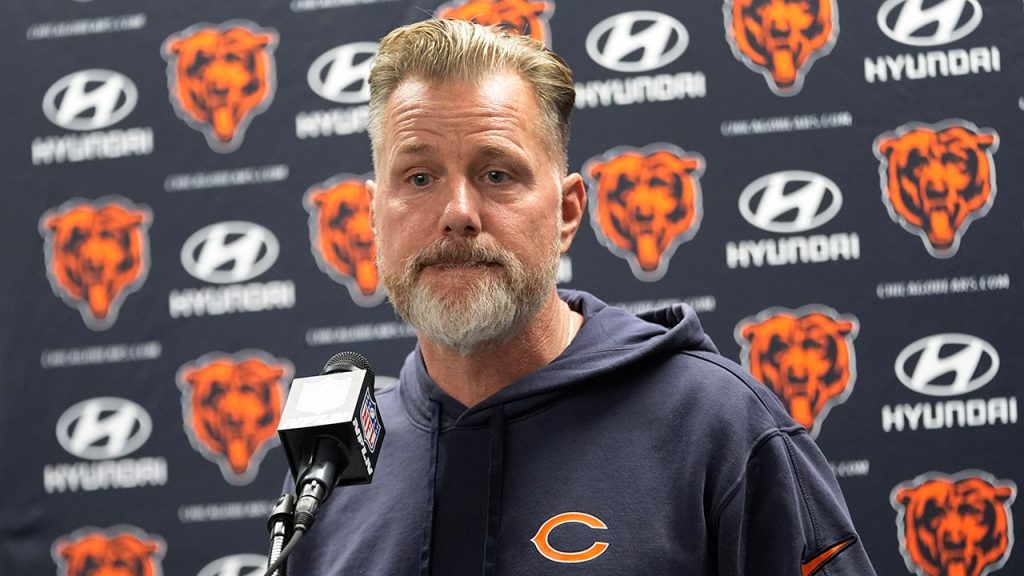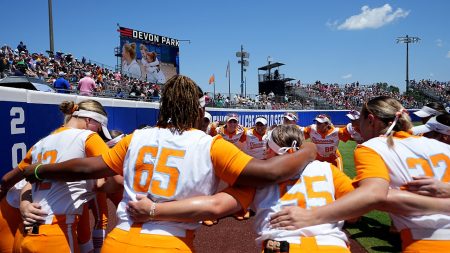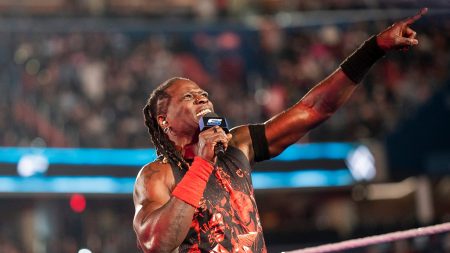The Chicago Bears acted swiftly to dismiss head coach Matt Eberflus after a disappointing loss to the Detroit Lions on Thanksgiving Day. The game was particularly frustrating for the Bears, who were in a position to potentially tie the game but failed to execute in the final moments. With rookie quarterback Caleb Williams under pressure and the clock running down, the offense was unable to snap the ball in time for a final play, resulting in a heartbreaking defeat. Adding to the intrigue surrounding Eberflus’s firing was the fact that he had one timeout remaining, which he did not utilize during this critical moment, suggesting a disconnect in game management decisions.
In the aftermath of the game, team president and CEO Kevin Warren lingered longer than usual in the locker room, a sign that his frustration was palpable. Warren addressed the team directly, emphasizing the need for improvement moving forward. Reports surfaced of a contentious locker room atmosphere following Eberflus’s post-game speech. Cornerback Jaylon Johnson voiced his frustrations, indicating that the players were tired of the losing mentality and felt compelled to hold each other accountable. This moment of tension underscored the deep dissatisfaction within the team about their performance and the coaching staff’s leadership.
Moreover, Eberflus’s attempt to speak to the team after the game was cut short, as he reportedly left the room shortly after starting his remarks. Players described the locker room as a “s— show,” showcasing the frustration and disappointment that had been brewing within the team. One player revealed that Eberflus’s motivational speeches, while well-intentioned, had become monotonous and less impactful given the team’s continual failures. The Bears’ inability to close out close games became a significant factor in the decision to let Eberflus go, as he finished with a strikingly poor record in one-score contests.
Adding to Eberflus’s woes was the recent history of the team under his guidance, which included a number of dramatic losses, exemplified by a controversial Hail Mary play against the Washington Commanders. The combination of questionable game management and a lack of in-game adjustments contributed to the negative perception of Eberflus’s tenure. The Bears became the first team in NFL history to fire a head coach mid-season while sitting on such a dismal record in one-score games, emphasizing the urgency to change direction within the team philosophy.
In light of these developments, the Bears have turned to Thomas Brown as the interim head coach for the remainder of the season. As a result of Eberflus’s abrupt exit, the franchise aims to revitalize its approach and possibly reclaim its competitive edge. The situation serves as a critical juncture in the Bears’ organization, motivating players and management alike to seek a new path forward, particularly as they grapple with the challenges of professional football in a highly competitive landscape.
Ultimately, Eberflus’s firing reflects both the high stakes of professional coaching and the intricacies of team dynamics. His tenure, though filled with challenges, will likely serve as a cautionary tale for future regimes and an opportunity for new leadership to instill accountability, determination, and a winning mentality in this storied franchise. As the Bears look toward the future, this transitional phase presents a pivotal moment for both the players and the organization, signaling the possibility of renewal and hope in a landscape often fraught with disappointment.










